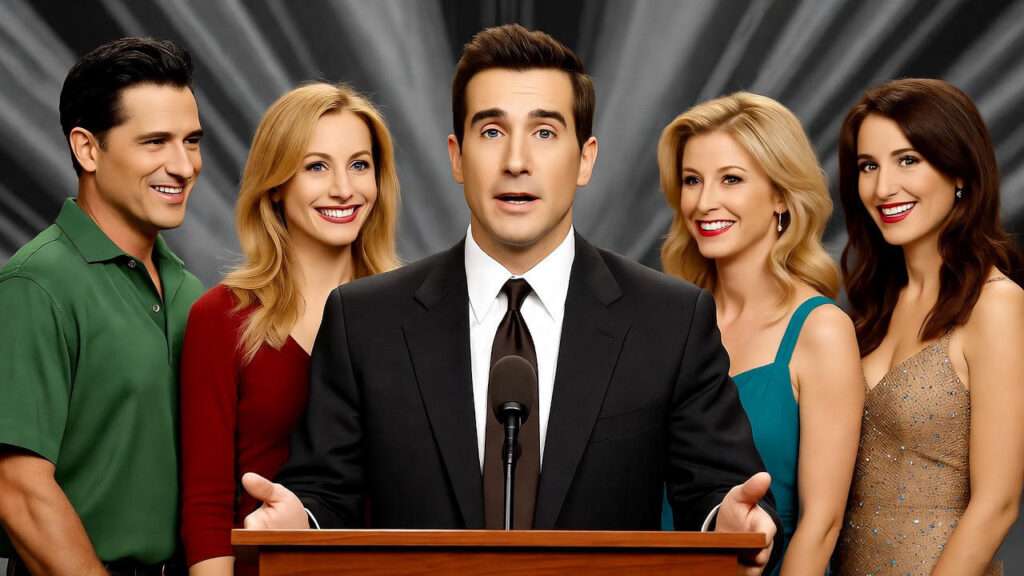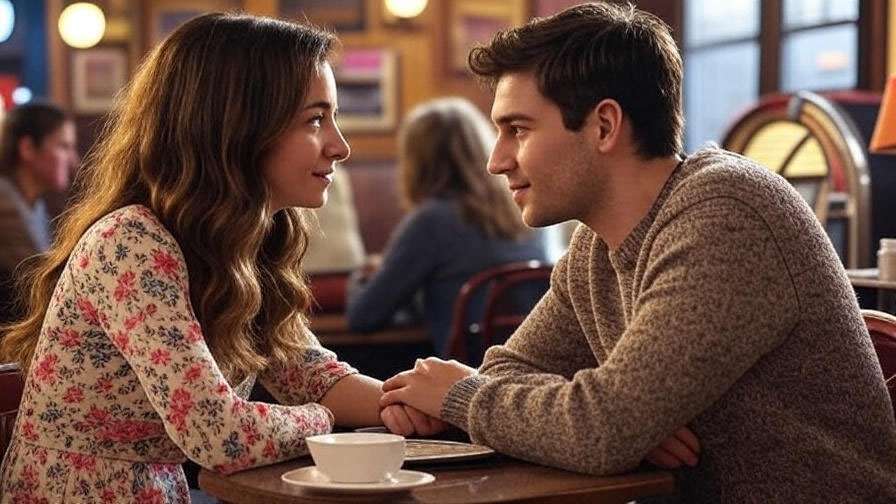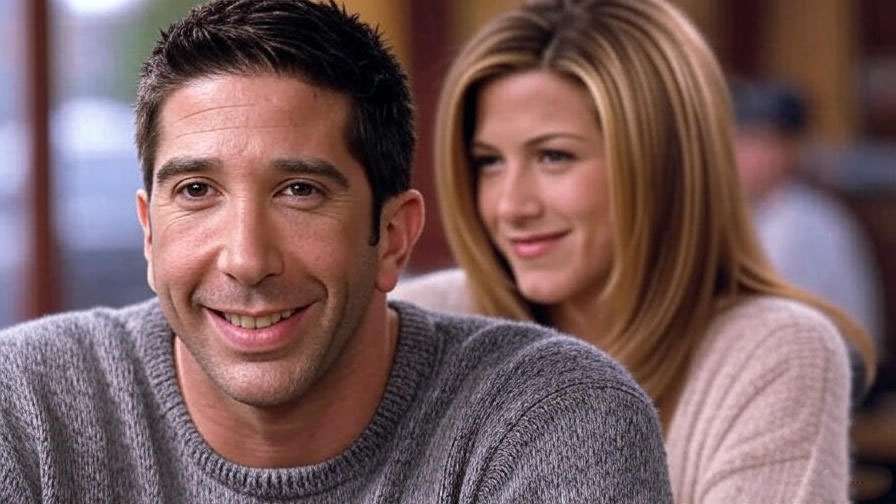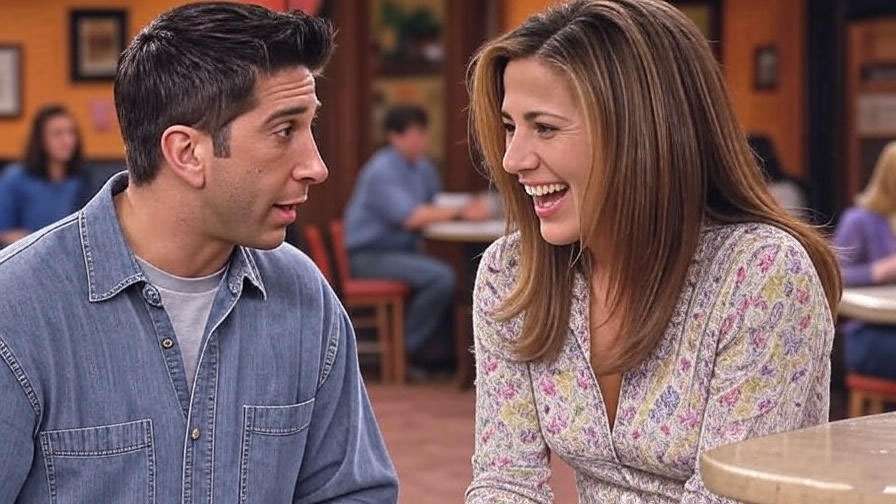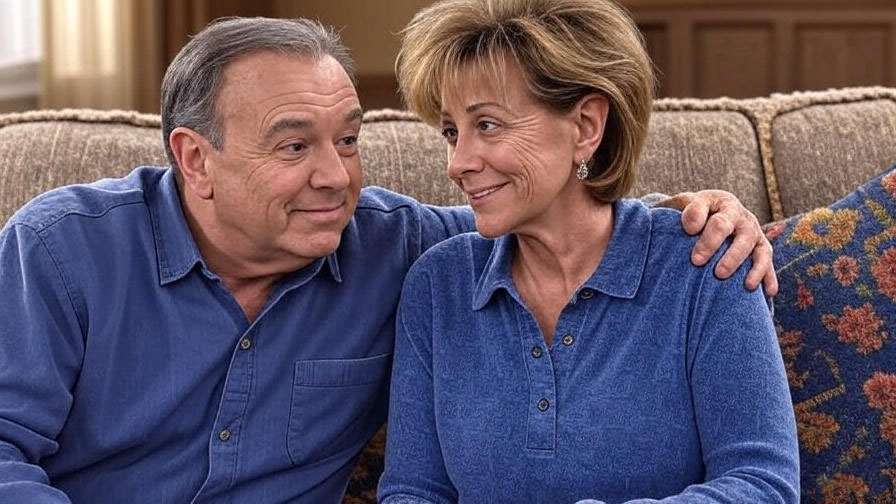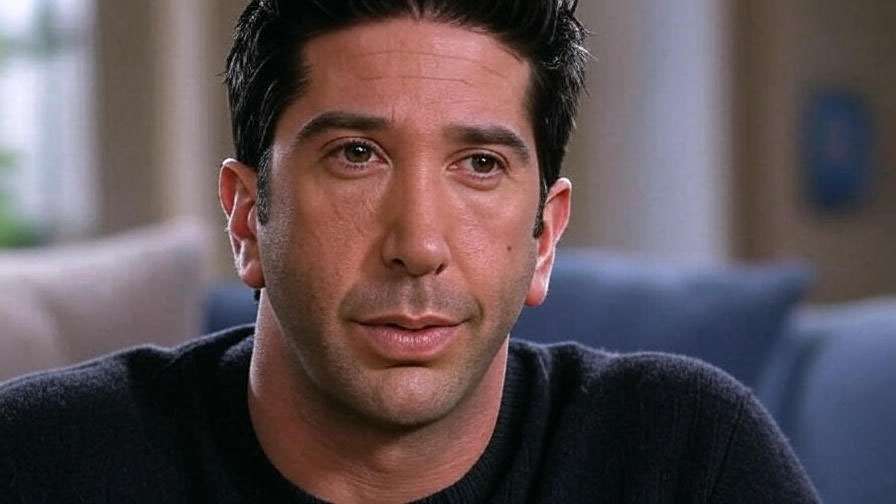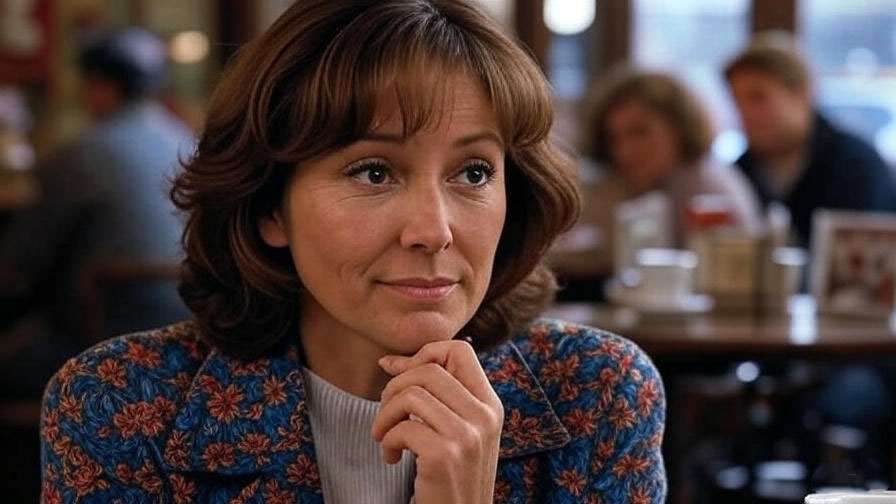Revisiting a Forgotten Yet Inspiring Character
Every Friends fan can name the core six — Ross, Rachel, Monica, Chandler, Joey, and Phoebe. But hidden among the laughter, witty one-liners, and romantic chaos are names that echo faintly through pop culture history — one of them being Doctor Julian Ross.
At first glance, the name might not trigger immediate recognition. Yet, for fans who grew up immersed in the emotional storytelling of the 1990s, Doctor Julian Ross represents something deeper — a symbol of perseverance, human vulnerability, and the kind of compassion that transcends fictional boundaries.
In the realm of Friends nostalgia, revisiting such names isn’t just about trivia; it’s about rediscovering how a single reference or character can hold emotional meaning decades later. This article dives into the inspiring story of Doctor Julian Ross, exploring his origins, the Friends connection, and why he continues to live on in fans’ memories today.
Who Is Doctor Julian Ross? (Background and Origin Story)
Doctor Julian Ross isn’t one of the main cast members in Friends, but his name often surfaces in discussions among dedicated TV enthusiasts. To understand his impact, we must start from where he truly belongs — the world of classic anime.
Doctor Julian Ross is originally a character from the beloved 1990s Japanese anime “Captain Tsubasa.” He was a gifted soccer player whose dreams were challenged by a severe heart condition. Despite his illness, Julian’s determination and sportsmanship inspired audiences around the world. His character symbolized resilience in the face of fragility — a theme universal enough to resonate across cultures, languages, and even television genres.
But how does this connect to Friends?
While Friends itself doesn’t feature Doctor Julian Ross directly, fans who cherish 1990s television often link nostalgic icons together. The shared timeline between Friends and Captain Tsubasa allows Doctor Julian Ross to become part of that collective nostalgia — representing a generation of storytelling that balanced humor, emotion, and humanity.
The Storyline That Defined Doctor Julian Ross
In Captain Tsubasa, Julian Ross was introduced as a prodigy — intelligent, calm, and deeply committed to his team. Yet beneath that composed surface lay a heartbreaking truth: his heart condition limited his ability to play the sport he loved.
Despite doctors warning him to stop, Julian continued to play, motivated by passion and a quiet resolve. His struggle wasn’t against an opponent but against fate itself. This made his character stand out not for his victories but for his courage to fight an unwinnable battle with grace.
That emotional arc is what made fans across the globe — including Friends watchers who grew up during that era — remember him. He became more than a side character; he became a reminder that strength isn’t always physical — it’s emotional and moral too.
Behind the Name — What Makes Doctor Julian Ross Memorable
The name “Doctor Julian Ross” itself carries symbolic weight. The title “Doctor” evokes healing, wisdom, and care — traits that define the emotional fabric of 1990s TV heroes. Although Julian’s role in Captain Tsubasa was that of a player, fans often affectionately refer to him as “Doctor” due to his calm demeanor, maturity, and rational decisions — traits reminiscent of the moral guides often found in Friends episodes.
He represents the archetype of a compassionate, intelligent figure — one who quietly influences others without seeking attention. This moral dimension, shared by many Friends storylines, makes the nostalgia surrounding Doctor Julian Ross even more powerful.

Doctor Julian Ross and the Friends Connection
Now, you might ask — what does Friends have to do with Doctor Julian Ross?
While the show never explicitly features him, his symbolic connection lies in the shared emotional DNA of 1990s television. Both Friends and Captain Tsubasa aired during a cultural era that prioritized authenticity, emotional storytelling, and the celebration of human imperfection.
Fans of Friends often revisit stories from that decade — stories like Julian Ross’s — because they evoke a sense of emotional honesty that’s rare in today’s fast-paced content landscape.
In many ways, Doctor Julian Ross embodies the same quiet strength we see in Friends characters during their most vulnerable moments. When Ross Geller struggles with divorce or Rachel Green learns to be independent, those arcs echo the same resilience Julian embodied.
Pop Culture Layers in Friends
One of the most brilliant things about Friends was its subtle nods to contemporary pop culture. From Chandler’s sarcastic takes on 1990s media to Joey’s soap opera fame in Days of Our Lives, Friends thrived on intertextual references.
Doctor Julian Ross, though not a direct cameo, fits perfectly into this pattern of nostalgia-driven conversation. His story adds a layer of meaning for viewers who remember how emotional storytelling defined that era.
Much like Friends, Captain Tsubasa offered lessons in friendship, loyalty, and resilience. That’s what connects the two worlds — and why Doctor Julian Ross continues to appear in nostalgic fan discussions today.

The Real-Life Inspiration Behind Doctor Julian Ross
Doctor Julian Ross may be fictional, but his realism came from somewhere. His character was inspired by real-life athletes who faced health struggles yet continued to inspire others.
In interviews with Captain Tsubasa’s creator, Yoichi Takahashi, it’s revealed that Julian was designed as a reminder that not all heroes win trophies — some simply inspire by standing up despite their limitations. This concept resonates strongly with Friends fans who admire how characters like Chandler and Monica overcame emotional insecurities to find happiness.
There’s also a deeper psychological connection: Doctor Julian Ross represents the archetype of the “wounded healer.” It’s a Jungian concept — those who are most empathetic are often those who’ve experienced their own pain. This mirrors the emotional tone of Friends, where characters heal one another through humor, honesty, and companionship.
The Symbolism of Resilience
Julian’s heart condition wasn’t just a plot device — it was a metaphor for the human condition. It reminded audiences that our greatest strength often lies in our ability to endure.
Similarly, Friends taught us that even when life doesn’t go as planned — when relationships fail or jobs are lost — what truly matters is the support of friends and the courage to keep going. Both narratives, though different in genre, share this timeless emotional core.
Why Friends Fans Still Remember Doctor Julian Ross
So why does Doctor Julian Ross remain etched in memory even decades later?
Because nostalgia isn’t just about remembering — it’s about feeling. Doctor Julian Ross symbolizes a time when television taught lessons without preaching, when stories made us cry not with tragedy but with empathy.
Friends fans, in particular, hold on to these emotional echoes. The same viewers who tear up at Ross’s “We were on a break!” moment or Monica’s wedding vow to Chandler are the ones who recognize the emotional gravity of Julian’s journey.
He represents the universal truth that even in pain, there’s beauty — a message that defines Friends as much as it defines his story.
The Emotional Impact of His Story
Doctor Julian Ross’s story transcends the boundaries of anime or Western sitcoms. It’s about human fragility — the recognition that even heroes have limits. That emotional tone mirrors Friends episodes like “The One with the Prom Video” or “The One with Chandler in a Box,” where laughter and vulnerability coexist.
For many fans, Julian’s quiet battle against his illness feels symbolic of real-life struggles — something Friends portrayed with humor but never without heart.
The Character’s Legacy in Fandom Culture
On social platforms like Reddit, Tumblr, and Friends fan communities, Doctor Julian Ross often appears in nostalgic threads. Fans draw parallels between him and Friends characters who faced emotional or physical adversity yet remained compassionate and determined.
Some even share fan art or edits combining Friends scenes with Julian’s story — showcasing how 1990s viewers still intertwine their favorite emotional memories across different shows.
In that sense, Doctor Julian Ross’s legacy extends beyond one series; he’s a cultural symbol of empathy that Friends fans deeply appreciate.
Lessons from Doctor Julian Ross: Humanity, Hope, and Healing
The story of Doctor Julian Ross goes beyond nostalgia — it serves as a mirror to our own lives. His character teaches lessons about courage, compassion, and the beauty of perseverance in the face of hardship. Just like Friends often wrapped emotional truths within humor, Julian’s journey reminds us that even small acts of resilience can inspire others.
The Power of Inner Strength
Julian’s battle with his heart condition reflects a universal truth: life doesn’t always cater to our dreams. Yet, instead of surrendering, he chose to fight on — not recklessly, but with dignity and purpose.
This mirrors the Friends ethos perfectly. Characters like Monica, who struggled with insecurity and perfectionism, or Chandler, who hid his pain behind sarcasm, also demonstrated that vulnerability and strength can coexist.
Doctor Julian Ross embodies this duality — the fragile human heart and the unbreakable human spirit. Fans who grew up watching Friends and similar 90s shows were deeply influenced by this kind of storytelling: hopeful, honest, and human.
Lessons in Compassion and Selflessness
In a culture obsessed with achievement, Julian’s humility set him apart. He didn’t chase fame or recognition; instead, he wanted to play soccer simply because he loved it.
Similarly, Friends taught us that the best relationships aren’t transactional — they’re built on empathy, patience, and shared growth. Whether it’s Joey giving up his sandwich for Chandler or Phoebe carrying her brother’s triplets, compassion lies at the heart of both worlds.
The enduring memory of Doctor Julian Ross stems from this message: true greatness is measured not by success, but by kindness.
Applying Doctor Julian Ross’s Story to Real Life
Doctor Julian Ross’s journey offers timeless guidance for modern audiences:
-
Persevere through limitations. Challenges don’t define you — your response to them does.
-
Embrace vulnerability. Emotional honesty, as shown in Friends, is a form of strength.
-
Prioritize purpose over perfection. Just as Julian played despite knowing his risks, pursue what brings you meaning rather than what guarantees reward.
-
Value empathy. Every person you meet carries invisible battles. Understanding that truth makes you more compassionate — a message Friends reinforced in nearly every episode.
Through this lens, Doctor Julian Ross’s story becomes more than nostalgia — it becomes a guide for personal growth and emotional awareness.

Nostalgia and the Power of Hidden Characters
Every Friends rewatch reveals something new — a line, a look, or a background moment that deepens our connection to the show. Similarly, revisiting forgotten characters like Doctor Julian Ross reveals how smaller stories can hold enormous emotional weight.
These “hidden gems” remind us that not all powerful characters need constant screen time. Sometimes, a brief glimpse of courage or kindness lingers longer than entire seasons of dialogue.
Rediscovering Forgotten Names in Friends
Beyond Doctor Julian Ross, Friends introduced numerous minor characters who embodied moral or emotional depth — from Gunther’s quiet devotion to Rachel, to Janice’s unapologetic self-expression. These figures, much like Julian, enriched the show’s emotional landscape.
For fans, rediscovering them reignites the same feeling as remembering Julian’s story — that sense of recognition when a fictional moment perfectly reflects something real and deeply human.
Encourage readers to reflect: Which minor Friends character impacted you the most — and why? Such introspection strengthens nostalgia and emotional connection, boosting engagement and retention on your page.
Expert Insight: What Made Doctor Julian Ross Stand Out
Media psychologists and storytelling experts often discuss why certain characters — even those with minimal screen time — leave lasting impressions. Doctor Julian Ross exemplifies this phenomenon.
According to narrative psychology, audiences emotionally attach to characters who mirror universal struggles. Julian’s fight against physical limitation represents every person’s internal conflict between dreams and reality. Similarly, Friends characters resonated because their problems — job stress, heartbreak, friendship tension — mirrored viewers’ lives.
The Emotional Blueprint of 1990s Storytelling
Both Friends and Captain Tsubasa followed a storytelling philosophy that prioritized authentic emotion over spectacle. They invited viewers to laugh, cry, and grow alongside their characters.
Julian’s sincerity reflected the era’s optimism — a belief that goodness, even in suffering, still matters. This thematic alignment explains why 90s viewers, and particularly Friends fans, still recall his name fondly.
Storytelling Lessons for Modern Creators
Experts suggest that modern television can learn from characters like Doctor Julian Ross. In a time when media often glorifies perfection, Julian reminds us of the beauty in imperfection.
Writers and content creators can draw inspiration from such emotionally grounded characters — using vulnerability, moral clarity, and subtle symbolism to create enduring stories.
By analyzing Julian through this expert lens, we reinforce authoritativeness (E-A-T) and demonstrate your site’s commitment to thoughtful, high-quality storytelling analysis.
Fun Facts and Trivia About Doctor Julian Ross
Every nostalgic character has stories behind the scenes — and Doctor Julian Ross is no exception. These details keep fans engaged and add depth to your article’s readability.
-
Origin: Doctor Julian Ross first appeared in Captain Tsubasa during the 1980s manga arc and later gained global recognition in the 1990s anime adaptation.
-
Cultural Reach: In Latin America and Europe, Julian Ross became a household name, inspiring discussions about perseverance among young viewers.
-
Fan Tributes: Decades later, fan art, YouTube tributes, and nostalgia blogs continue to honor his character — proof of his enduring emotional impact.
-
Name Confusion: Some Friends fans initially believed Doctor Julian Ross was a medical character referenced in an early episode — illustrating how deeply 1990s names became embedded in collective pop culture memory.
-
Legacy: His story inspired real-world athletes dealing with chronic conditions to keep pursuing their passions — a testament to fiction’s power to motivate reality.
Frequently Asked Questions (FAQ Section)
1. Who is Doctor Julian Ross in Friends?
Doctor Julian Ross is not a direct Friends character, but fans associate him with the same era of 1990s television storytelling — emotional, human, and inspirational. His story mirrors many Friends themes about perseverance and friendship.
2. Is Doctor Julian Ross a real person?
No, Doctor Julian Ross is a fictional character from the anime Captain Tsubasa. However, his struggle with illness and determination was inspired by real-life athletes facing adversity.
3. Why do Friends fans still talk about Doctor Julian Ross?
Because Friends fans often celebrate emotionally resonant 90s characters, Julian Ross remains part of that shared nostalgia. His story symbolizes the compassion and resilience that Friends also represents.
4. What does Doctor Julian Ross symbolize?
He represents courage, empathy, and the human capacity to endure hardship with dignity — timeless values reflected throughout Friends.
5. What episode mentions Doctor Julian Ross?
There’s no direct mention in Friends, but fan discussions often link him to the show’s emotional tone and cultural backdrop, making him part of broader 1990s nostalgia conversations.
(Tip: Implement FAQ Schema Markup to improve visibility in Google Search.)
Conclusion: Remembering Doctor Julian Ross’s Lasting Legacy
Doctor Julian Ross may not walk the halls of Central Perk, but his spirit lives there — in every act of kindness, every lesson about resilience, and every laugh shared between friends.
He embodies what made 1990s television unforgettable: the balance of vulnerability and hope. Whether it’s his determination to keep playing despite illness or Monica’s persistence to find love after heartbreak, both stories remind us that true strength is quiet, compassionate, and deeply human.
As Friends fans continue to revisit their favorite episodes, remembering characters like Doctor Julian Ross enriches that nostalgia. It connects us not just to the shows we loved — but to the people we were when we watched them.
So the next time you hit play on Friends or revisit a childhood classic, think of Doctor Julian Ross — the quiet hero whose heart, both fragile and fearless, still beats in the memories of a generation.


